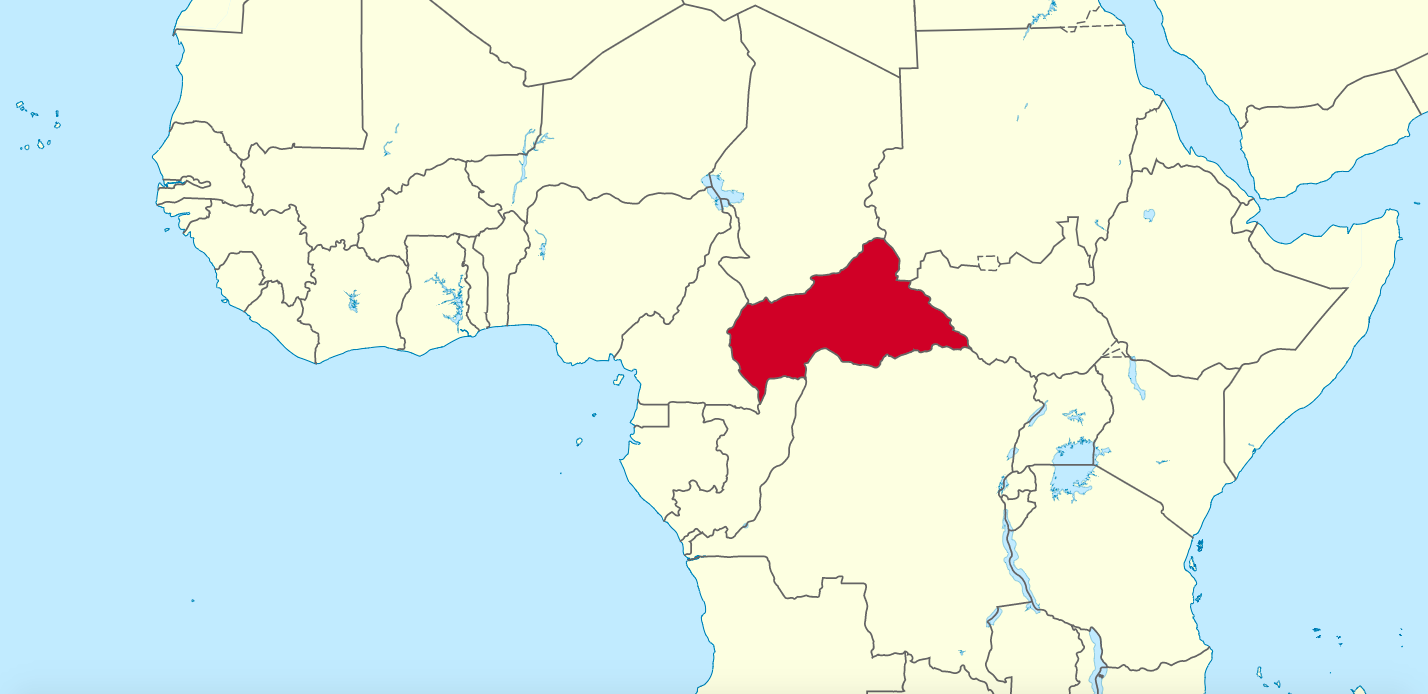In this week’s news roundup, you’ll read about the Central African Republic following in the footsteps of El Salvador and adopting Bitcoin as an official currency, Afriex closing its Series A funding with a $10 million raise to expand its blockchain money transfer app, and more.
Central African Republic Adopts Bitcoin as an Official Currency
Central African Republic has officially adopted Bitcoin as a legal currency. The news was announced on April 27, by the presidency. The Central African Republic has officially become the first country in the African continent to do so and the second in the world after El Salvador.
A statement signed by Chief of Staff of President Faustin-Archange Touadera, Obed Namsio, said that a bill governing the use of cryptocurrencies was unanimously adopted by parliament last week.
“The president supports this bill because it will improve the conditions of Central African citizens,” said Namsio.
In his statement, Namsio went ahead to say that the move was “a decisive step toward opening up new opportunities for our country”.
The news comes at a time when various African governments have taken a varied approach to regulate cryptocurrencies and blockchain technology with countries like Nigeria launching their own CBDC and others like Kenya, Zimbabwe, and Zambia are still exploring the same.
Nigerian Fintech Startup Afriex Secures $10 Million in Series A Funding For Its Blockchain Money Transfer Platform
 Nigerian blockchain-based money transfer startup, Afriex, has announced that it has raised $10 million in its Series A funding with a valuation of $60 million. Afriex is a multi-currency app that enables users to send and receive money from anywhere in the world.
Nigerian blockchain-based money transfer startup, Afriex, has announced that it has raised $10 million in its Series A funding with a valuation of $60 million. Afriex is a multi-currency app that enables users to send and receive money from anywhere in the world.
The funding round was led by Sequoia Capital China and Dragonfly Capital and received participation from other investors such as Goldentree, Exceptional Capital, Stellar Foundation, among others.
Afriex processes over %5 million in monthly transfers and has grown its customer base by 500 percent within the last six months. The company makes money by arbitraging the currency and crypto exchange rates when customers transact.
Speaking in an interview, Tope Alabi, the Co-Founder and CEO of Afriex said, “Because we are building this network of connected financial institutions, we have built on-ramps for local Nigerian banks and on-ramps for local currency exchanges. We are building this Web3 mesh of financial institutions that could almost become something like the next Visa.”
The app that offers instant, zero-fee transfers for Africans at home and in the diaspora, plans to use the funds to expand its blockchain money transfer app.
Nigeria’s Fintech Startup Transfy Eyes Continental Growth Following a Successful First Year
Transfy, a Nigerian fintech startup, has announced that it’s planning for continental expansion following a strong early uptake of its payment infrastructure. The company has built a blockchain-powered financial services platform that makes it easy for business and individuals to seamlessly, securely, and freely send and receive money across Africa.
Having processed transactions worth $15 million in its first year of operations with zero marketing spend, the platform enables users to create an account, pass KYC, and start transacting.
Vincent Omulo, the startup’s Co-founder and Chief Operations Officer, said, “Most of the money remittance companies concentrate on other corridors outside of Africa like origination of transactions from the United States, Canada, United Kingdom, and Middle East among others. There are very few companies, which are committed to connecting Africa financially. We therefore came in to bridge this gap.”
The bootstrapped startup is currently raising a seed round and plans to use the funds to propel the company into further growth.
“We are currently operational in Kenya, Nigeria, South Africa, Rwanda, Uganda, Zambia, Ghana, and Botswana,” Omulo said. “We are rapidly expanding, and before the end of Q2, we will be present in 30 African countries.”
To learn more about Bitcoin, download the Bitcoin Beginner’s Handbook for free.


 Features3 years ago
Features3 years ago
 Bitcoin2 years ago
Bitcoin2 years ago
 Features3 years ago
Features3 years ago
 Features3 years ago
Features3 years ago
 Features3 years ago
Features3 years ago
 Features3 years ago
Features3 years ago
 Features8 months ago
Features8 months ago
 Bitcoin10 months ago
Bitcoin10 months ago

 Nigerian blockchain-based money transfer startup, Afriex, has announced that it has raised $10 million in its Series A funding with a valuation of $60 million. Afriex is a multi-currency app that enables users to send and receive money from anywhere in the world.
Nigerian blockchain-based money transfer startup, Afriex, has announced that it has raised $10 million in its Series A funding with a valuation of $60 million. Afriex is a multi-currency app that enables users to send and receive money from anywhere in the world.










 Central African Republic (CAR) has set up a 15-member committee that will be responsible for developing a bill on the use of cryptocurrencies and tokenization in the region.
Central African Republic (CAR) has set up a 15-member committee that will be responsible for developing a bill on the use of cryptocurrencies and tokenization in the region.
